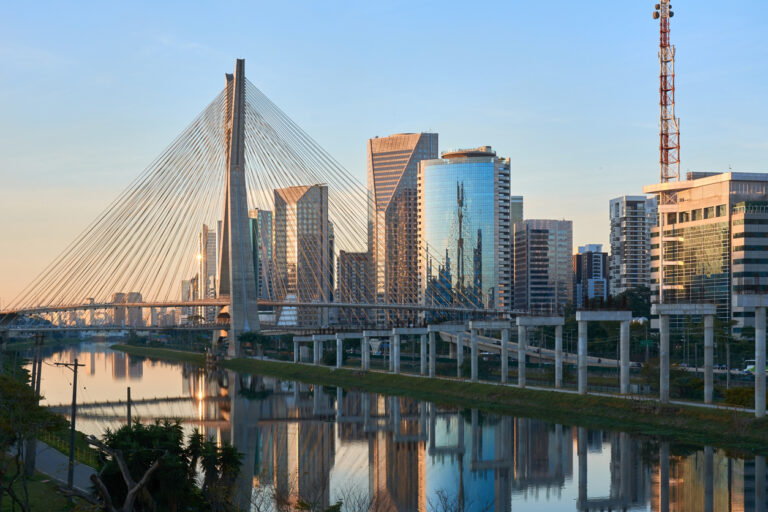We are a long way from 2015. That year, the world committed to the Sustainable Development Goals and the Paris Agreement on climate – promising to end extreme poverty, address corrosive inequality, boost peace and prosperity, and stop climate change.
Now in 2018, we already look back at 2015 with nostalgia. This was the high water mark of multilateralism, brought low by the rise of populism and ‘illiberal democracy’. Suddenly, it seems, we are forced to find ways of rescuing the global rules-based order.
The EU has a strong interest in defending multilateralism. Its economic power as the world’s largest market depends on rules-based trade and finance; and its political strength requires the rule of law. Externally, the EU is the world’s largest aid donor and an important defender of human rights. Internally, it also needs to safeguard its values and ability to work together.
The EU has embraced from the beginning a form of multilateralism that was not cooperation in pursuit of narrow self-interest, but rather one where the mutual gains from cooperation made the whole bigger than the sum of its parts.
Today, global challenges require global action. The SDGs provide a framing. For the EU, there are five priorities.
First, to help deliver an inclusive, equitable globalisation that shares the benefits of fair trade and investment with citizens at home and abroad. For many countries that have begun to escape long-term poverty, the key to success has been to engage in the world economy through trade, so trade rules and trade facilitation need to be central. And fighting inequality globally and within the EU promotes long-term economic prosperity and social stability.
Second, to engineer the sustainability revolution needed to avoid the worst impacts of climate change. The EU has a role in developing and scaling investments, technology, and policy needed to achieve major transitions in energy, water, agriculture, and consumption; and in supporting the actions needed to adapt to higher temperatures, higher sea levels, disrupted weather patterns and extreme weather events.
Third, to tackle conflict, invest in prevention, deploy civil and military means to support stabilisation and peacebuilding, and take action internationally to limit arms sales. Thus, a new development cooperation needs to be about how to deal with complex security threats, like those found in the Sahel or Myanmar, and with the impact of war on ordinary people in countries like Yemen or Syria. There are no easy wins or short-term commitments. Progress will require all the arts of diplomacy and defence, alongside development and humanitarian aid.
Fourth, to move migration policy beyond ‘Fortress Europe’, respecting the rights of refugees and recognising the many benefits of legal, safe migration – and not just for the migrants themselves. Remember, migration rises, not falls, in the early stages of economic development: investing in the countries of origin will reduce migration pressure, but only in the long term.
Fifth, to promote human rights and democratic norms inside the EU and globally.
It is not axiomatic that ‘Europe’ should be the instrument of choice in all these cases. European countries need to support the work of the UN, and of bodies like the World Bank and the IMF. ‘Europe’ must always make its case.
However, the European Union brings many assets and has a track record to be proud of: committed to democracy and to accountable institutions; collectively, the world’s largest aid donor; together, pioneers in climate action; progressive trade policy, emphasising labour and environmental standards; and experience in civil and military security missions.
Furthermore, the actions Europe itself takes internally shape the prospects for achieving the SDGs. For example, phasing out coal in the EU is just what the Marshall Islands and other climate vulnerable countries need and are calling for.
So, there is much to do, and there are many choices to make. The forward EU budget to 2027 is under negotiation. A Summit is planned for May 2019, in Sibiu, Romania, to set in train a process of European renewal. Elections to the European Parliament will take place, also in May. There is no single, uncontested routemap. These inter-locking processes need to debate alternative futures and sketch policy and fiscal alternatives. There will then be an agenda for the new European Commission at the end of the year. This cannot be an empty discussion in the abstract about more or less Europe. Our vision of positive multilateralism needs firm commitments. This is what we should be asking of national leaders, of MEPs, and of the new Commission.
- Lucien Chabason is Acting Director of the Institute for Sustainable Development and International Relations/ Institut du Développement Durable et des Relations Internationales, Paris, France
- James Mackie is Acting Director of the European Centre for Development Policy Management, Maastricht, the Netherlands
- Simon Maxwell is Chair of the European Think Tanks Group
- Imme Scholz is Acting Director of the German Development Institute / Deutsches Institut für Entwicklungspolitik, Bonn, Germany
- Alex Thier is Executive Director of the Overseas Development Institute, London, UK
- Nathalie Tocci is Director of the Istituto Affari Internazionali, Rome, Italy
This opinion piece was published on EURACTIV’s website.
A Dutch translation is available here
A Deutsch translation is available here
An Italian translation is available here
Image courtesy of Guy Sie via Flickr.



